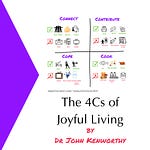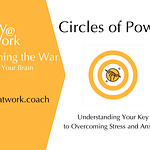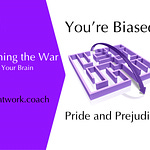Encourage When you ask someone what they want from life, most people will tell you that they want to be happy. Push a little bit more and they will tell you they want to do something useful or meaningful, make a difference, leave a legacy, or fulfil a calling. We call that succeeding. That is, the activities we undertake every day provide us with personal happiness or satisfaction and have long term benefits for yourself and/or other people. Some people are happy because they do something that helps others long term, even short term. Others do so out of some form of obligation or guilt and do not derive happiness from it. Many people find each day something of a chore, that is neither satisfying nor brings long term benefits. And an increasing number of people fill their days with fun activities that provide little benefit to anyone. Develop Look across the room to your fellow diners and it's highly likely that the next table are all staring at their phones. A passenger in the car next to you is playing a game. Kids sit glued to their tablet. We carry devices around with us that link us instantly to a world of entertainment and distraction. Then there's work. Which, in comparison can seem to be a lot less stimulating, but you gotta do what you gotta do. Then the blessed relief of a beep means an interesting and exciting message has been pushed through to your device and a shot of dopamine spikes through your brain bringing the promise of untold pleasure and fun. You open your inbox and see message after message demanding attention but you want to ignore because they're not the fun type of message. In fact, they cause a jolt of cortisol to flush through your brain and a little norepinephrine that triggers your fight or flight travel centre to divert energy from your stomach to your arms and legs. Every day you are faced with choices about what to do when. It's tempting to take the short term happiness generators, or maybe you're the sort of person who buckles down and does the most unpleasant task first saving the fun stuff for later? It's going to help you know what you spend your time on now and evaluating using this chart. ` This chart has two dimensions and five different modes of behaviour that we use to characterise our relationship to any activity. You simply ask two questions about an activity you undertake: Does this activity make me happy (or provide a degree of short-term satisfaction)? Are the results achieved from this activity worth my effort in giving a long-term positive impact on my life? There are no “right” answers to these questions, and your rating score is entirely down to you (by all means keep changing it until you work out what is really a 10, and what is really a 1) In an ideal perfect world, we would find great short-term happiness in everything we do, and each reaps the long-term benefit. In reality, we all do things that run short of the perfect score for us, but the more we can get the balance and the higher, the better. For high performance, you do those things that bring the greatest long-term benefit in the shortest time. For most fun you do those things that bring the greatest happiness over the longest period of time. In the end, it’s your choice but the better the overall balance, the more likely you are to enjoy each and every day. You can then plot your regular activities on a chart like the one above. Which activities are Surviving, which stimulating, sacrificing succeeding or are they sustaining? Guide Stimulating activities feed your short-term satisfaction but do little for long-term benefit. Watching an amusing YouTube video, most television programming, an alcoholic drink or three, smoking a cigarette or taking drugs may provide a quick "high" but long-term could even be harmful. It's increasingly easy to fritter your life away on fun but meaningless activities and many of these activities are addictive in part because of the ease of stimulating dopamine spikes in the brain. Sacrifici
Joy@Work Podcast
Helping marketplace leaders #UnStuck their true potential to thrive in life and leadership to build a successful, sustainable business with collaborative, high performance teams and Joy@Work with practical, neuroscience-based AdvantEdge Guides and coaching.
Helping marketplace leaders #UnStuck their true potential to thrive in life and leadership to build a successful, sustainable business with collaborative, high performance teams and Joy@Work with practical, neuroscience-based AdvantEdge Guides and coaching.Listen on
Substack App
RSS Feed
Recent Episodes














Share this post